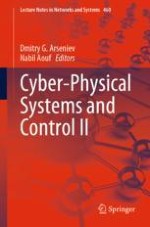2023 | OriginalPaper | Chapter
Toward a Novel Neuroscience-Based System Approach Integrating Cognitive and Implicit Learning in Education
Authors : Dante Jorge Dorantes-Gonzalez, Nadezhda Tsvetkova, Svetlana Veledinskaya, Olesya Babanskaya, Tuna Çakar
Published in: Cyber-Physical Systems and Control II
Publisher: Springer International Publishing
Activate our intelligent search to find suitable subject content or patents.
Select sections of text to find matching patents with Artificial Intelligence. powered by
Select sections of text to find additional relevant content using AI-assisted search. powered by
